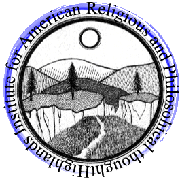 The Institute for American Religious and Philosophical Thought (IARPT; formerly HIARPT) is hosting its annual conference in Colorado Springs from June 11-15, 2012. The theme of the conference, according to the Call for Papers, “encompasses exploration, defense, and criticism of the various forms of metaphysical and/or religious naturalism that have been proposed in the past, are being argued for in the present, or are thought to be inviting possibilities for the future.” This theme is close to the heart of the intellectual interests of this remarkable group of intellectuals, which takes its rise from the Chicago School’s early twentieth-century naturalism, American pragmatism along the Harvard-Columbia axis, and process thought.
The Institute for American Religious and Philosophical Thought (IARPT; formerly HIARPT) is hosting its annual conference in Colorado Springs from June 11-15, 2012. The theme of the conference, according to the Call for Papers, “encompasses exploration, defense, and criticism of the various forms of metaphysical and/or religious naturalism that have been proposed in the past, are being argued for in the present, or are thought to be inviting possibilities for the future.” This theme is close to the heart of the intellectual interests of this remarkable group of intellectuals, which takes its rise from the Chicago School’s early twentieth-century naturalism, American pragmatism along the Harvard-Columbia axis, and process thought.
The group is thriving, having built upon many successful years associated with the lovely town of Highlands North Carolina and the priceless leadership of Creighton Peden. Almost everyone in the United States involved in pragmatism, naturalism, and religion has some connection with this group. it is also a close-knit group, with lots of friendships stretching across many years. This is partly because it is one of the few places where metaphysical conversations still have an honored place in American philosophical and theological discussion.
Here is some more information from the 2012 Annual Conference Call for Papers.
“Part of the task of the conference will be to address issues concerning the nature of naturalism itself as a metaphysical position or religious outlook and commitment. For example, was Aristotle a naturalist? Why or why not? Is panentheism a naturalistic position? Does adequate explanation of the present existence and character of the universe require the positing of an ultimate source or ground that is not itself a part of the existing universe—and if so, does this mean a departure from naturalism? Did the universe begin at some point, or has it always been, in some shape or form? Is natura naturans a part of nature, or does it transcend nature? What is the relationship of naturalism and materialism? Can an idealist be a naturalist? Does naturalism simply mean rejection of anything that could be termed supernatural? How are metaphysical and epistemological naturalism to be distinguished?
“Other questions to be considered might include the following: What are the specific merits or strong points of a naturalistic outlook? How can such an outlook be criticized? What is the relation of metaphysical or religious forms of naturalism to the findings of the natural sciences? What sort of case could be made in favor of some sort of transcendent theism or spiritualism as over against various forms of naturalism? Which, if either, is primordial or emergent, matter or mind? What is matter and how does an adequate metaphysical or religious definition of it relate to current physics? How does naturalism relate to scientism? How does it relate to the natural sciences in general? How does naturalism account for evil or provide resources with which to respond to and cope with the menace of evil? Does evil exist only among human beings or is it a feature of nature itself? How do humans relate to the natural order? What are their responsibilities to that order?”
